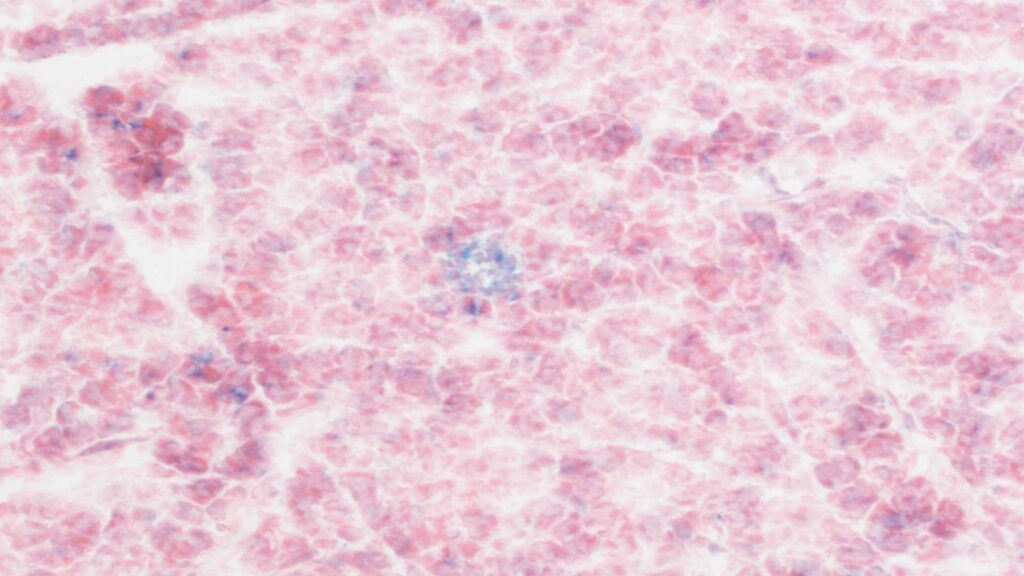DISCOVERIES & INNOVATION
CAR T Cells May Be the Answer to a Longer Life
CAR (chimeric antigen receptor) T cells just might be the secret weapon against aging. Cold Spring Harbor Laboratory (CSHL) Assistant Professor Corina Amor Vegas and colleagues have discovered that T cells are white blood cells that can attack another group known as senescent cells.
Senescent cells eventually stop multiplying as we age but don’t die off. Instead they release chemicals that will cause inflammation and expose us to diseases that come with age such as Alzheimer’s cancer and diabetes. CAR T cells can be manipulated to eliminate senescent cells, as proved in an experiment done with mice.

Amor Vegas stated, “T cells have the ability to develop memory and persist in your body for really long periods, which is very different from a chemical drug. With CAR T cells, you have the potential of getting this one treatment, and then that’s it. For chronic pathologies, that’s a huge advantage. Think about patients who need treatment multiple times per day versus you get an infusion and then you’re good to go for multiple years.”
The team found that the tested mice lived longer healthier lives. This kind of treatment given at a young age can help prevent a person from a number of conditions that might develop in their future, thus possibly slowing down the aging process.

THERAPEUTIC TALK
PKDO Foundation Assists Births of First Four PKD-Free Babies
Polycystic Kidney Disease (PKD) is a genetic condition that affects 600,000 people in the U.S. and is one of the leading causes of kidney failure. As there is no cure for the disease and there is a 50% chance the gene can be passed genetically, the PKDO Foundation has devoted their research to preventing future generations of this disease. The researchers at the Foundation are taking a novel approach to disease prevention by using the IVF and Preimplantation Genetic Testing (PGT) to help prevent the gene from being passed down to future generations. The 100 PKD Free Babies initiative will fund pre-implantation genetic testing (PGT-M) for 100 families, to enable a new generation of children to be born without PKD.
“We are pleased that our efforts to raise awareness about PKD and directly help families is succeeding. As of January 10, 2024, four PKD-free babies have been born as part of our 100 PKD-Free Babies initiative and more than 50 families are now part of our program,” said Richard Kellner founder of the PKD Outreach Foundation.
Polycystic Kidney Disease is a genetic condition that results in cysts on the kidneys which grow and often result in kidney failure by the time the patient is in their late 40s or 50s. Only one parent needs to have the disease for it to pass to their children. The overall goal of the program is to reduce the number of babies born with PKD from approximately 7,500 per year to 0.
PATIENT PAGES
Cedar Gate Technologies Brings Awareness of Declining Cervical Cancer Screenings in Women

Nearly 14,000 new cases of invasive cervical cancer are diagnosed each year, and more than 4,300 women die annually as a result of this cancer. An analysis of cervical cancer screening rates per 1,000 members between January 2020 and June 2022 shows that the number of women getting screenings has declined each year. This is a result of a low amount of recommendations by healthcare providers, according to data from Cedar Gate Technologies’ proprietary Cedar Gate Technologies encourages women to get regular Pap smears and HPV screenings to decrease issues with cervical cancer.
National Healthcare Benchmark Database.
“Pap smears and HPV screenings are the most effective methods currently available to detect signs of cervical cancer,” said Ginger Pape, PharmD and Vice President of Product Management at Cedar Gate. “When we see a decline in these lifesaving screenings, it raises concerns that women and their providers will miss key indicators that could help discover cancer earlier, which leads to more treatment options.”
Ratings based on 1,000 women show that besides the spike of cases during the Covid-19 pandemic, the amount of cervical cancer screenings has decreased starting in the early months of 2020. Throughout the remainder of that year, screenings went back up, but started to decline again in 2021.
“There could be multiple factors contributing to the changes in screening rates, including general lack of screening knowledge,” said Pape. “While our data cannot tell us the specific cause of the decline, it can help healthcare organizations identify these trends in their own population and create actionable plans to reach out to women who are overdue for a Pap smear or HPV screening.”
Regular testing with Pap smears and HPV screening can help doctors detect precancerous changes, leading to early diagnosis, and are more effective if they are recommended to patients from their doctors to bring to their attention. A study from The National Cancer Institute revealed that the number of women who were unaware they should get these screenings went up from 45% in 2005 to 55% in 2019. The number of women who said they did not get a recommendation from a healthcare professional to get these screenings also doubled, from 6% in 2005 to 12% in 2019.
FDA UPDATE
Aurlumyn (iloprost) injection by Eicos Sciences, Inc. was approved by the U.S. Food and Drug Administration to treat severe frostbite, which is when both a person’s skin and underlying tissue are frozen and blood flow is stopped, sometimes requiring amputation. Aurlumyn is the first frostbite medication approved by the FDA and contains iloprost, is a vasodilator (a drug that opens blood vessels), and prevents blood from clotting.

J&J ‘s Approved Bladder Cancer Drug Shrinks Tumors Johnson & Johnson received FDA approval for Balversa, also known as erdafitinib,which has been shown to shrink tumors in almost one third of bladder cancer patients. The pill is now recommended for patients with locally advanced or metastatic urothelial carcinoma (mUC) who have certain FGFR3 mu- tations and have failed at least one prior systemic therapy. However, Balversa is not recommended for patients who are eligible for but haven’t tried PD-1 or PD-L1 inhibitors.
Takeda’s EOHILIA is the first and only FDA approved corticosteroid indicated for 12 weeks of treatment in patients 11 years and older with EoE. EoE is a chronic, immune-mediated, inflammatory disease localized in the esophagus. Although the exact cause is unknown, it is believed to be triggered by a variety of stimuli including certain foods and environmental allergens. EOHILIA being an oral treatment can help better meet the needs and flexibility of those diagnosed.







